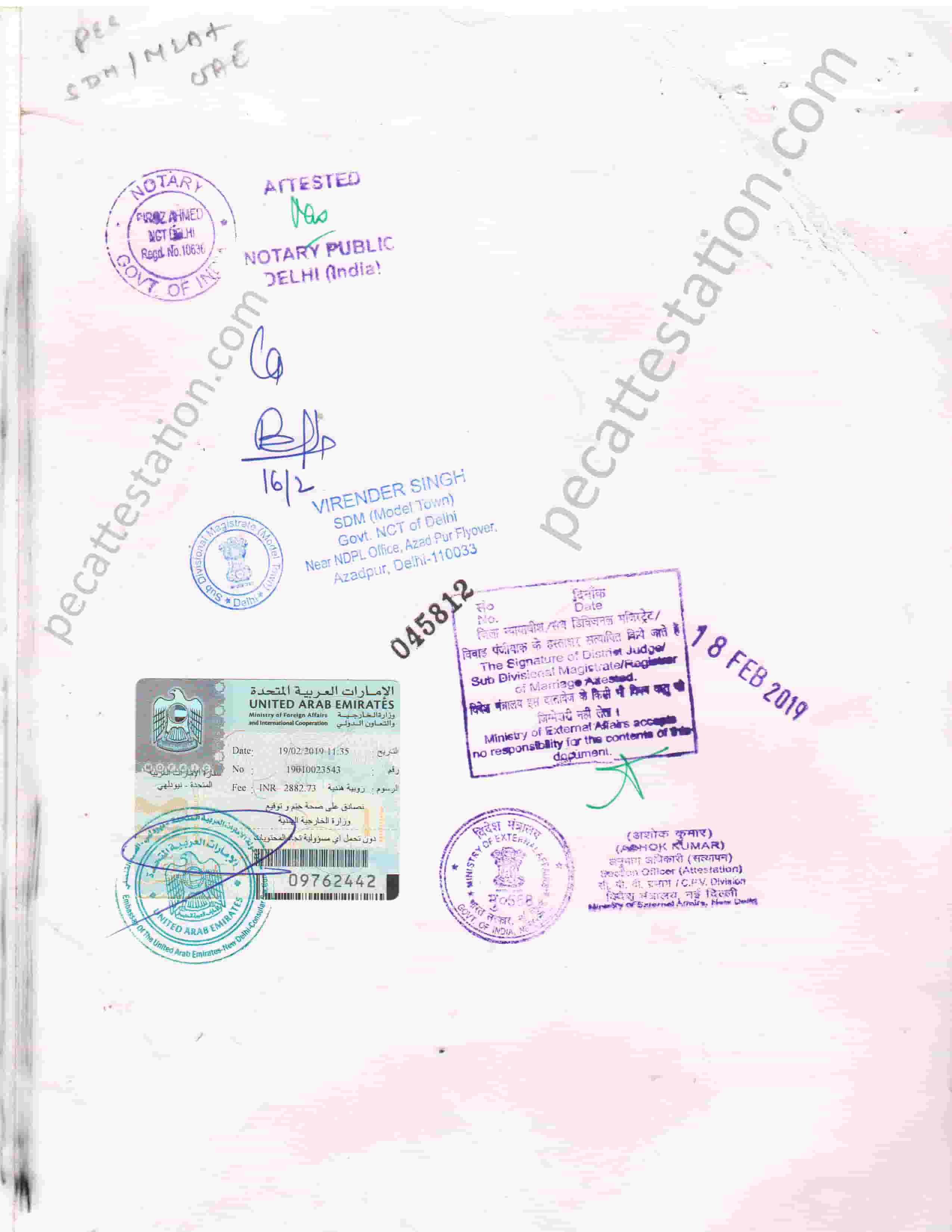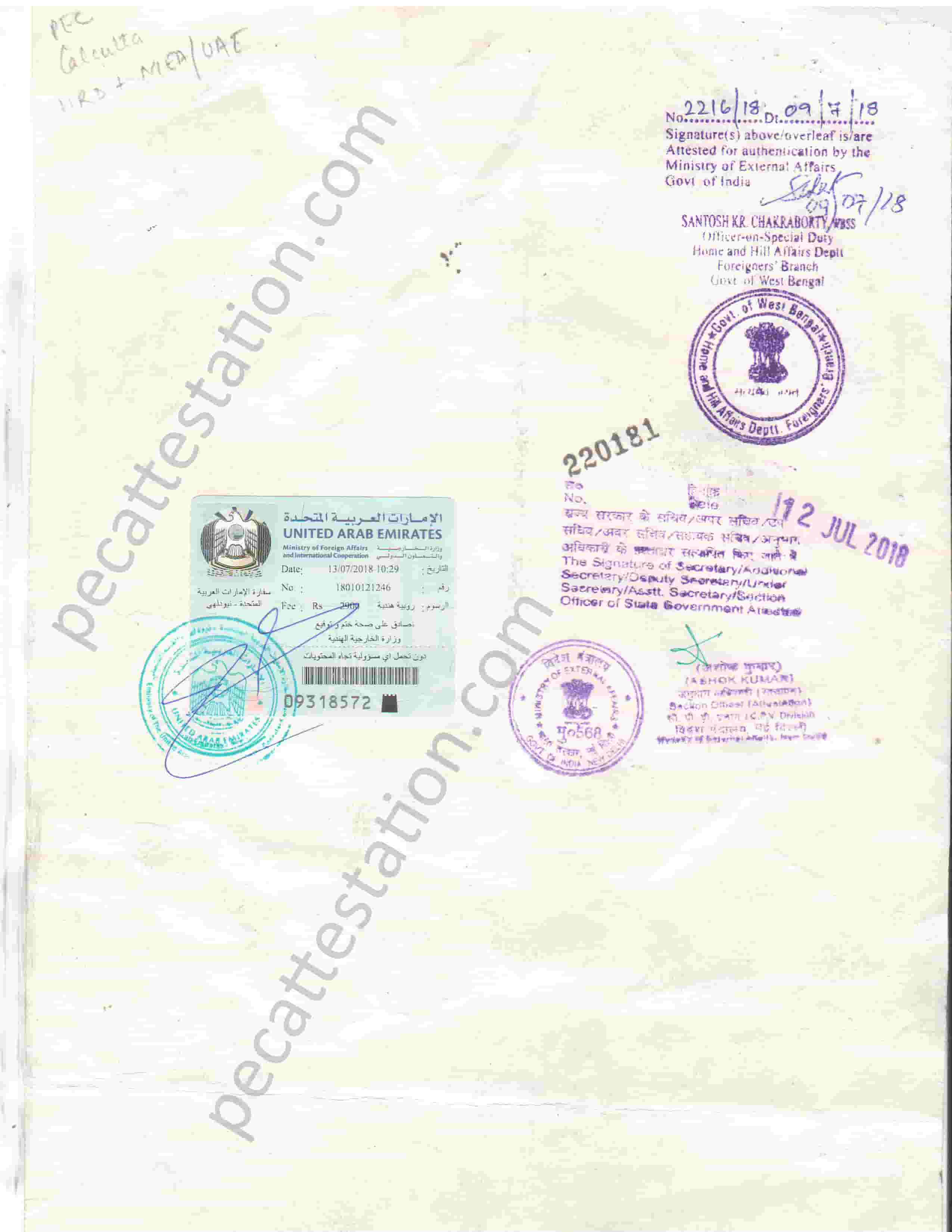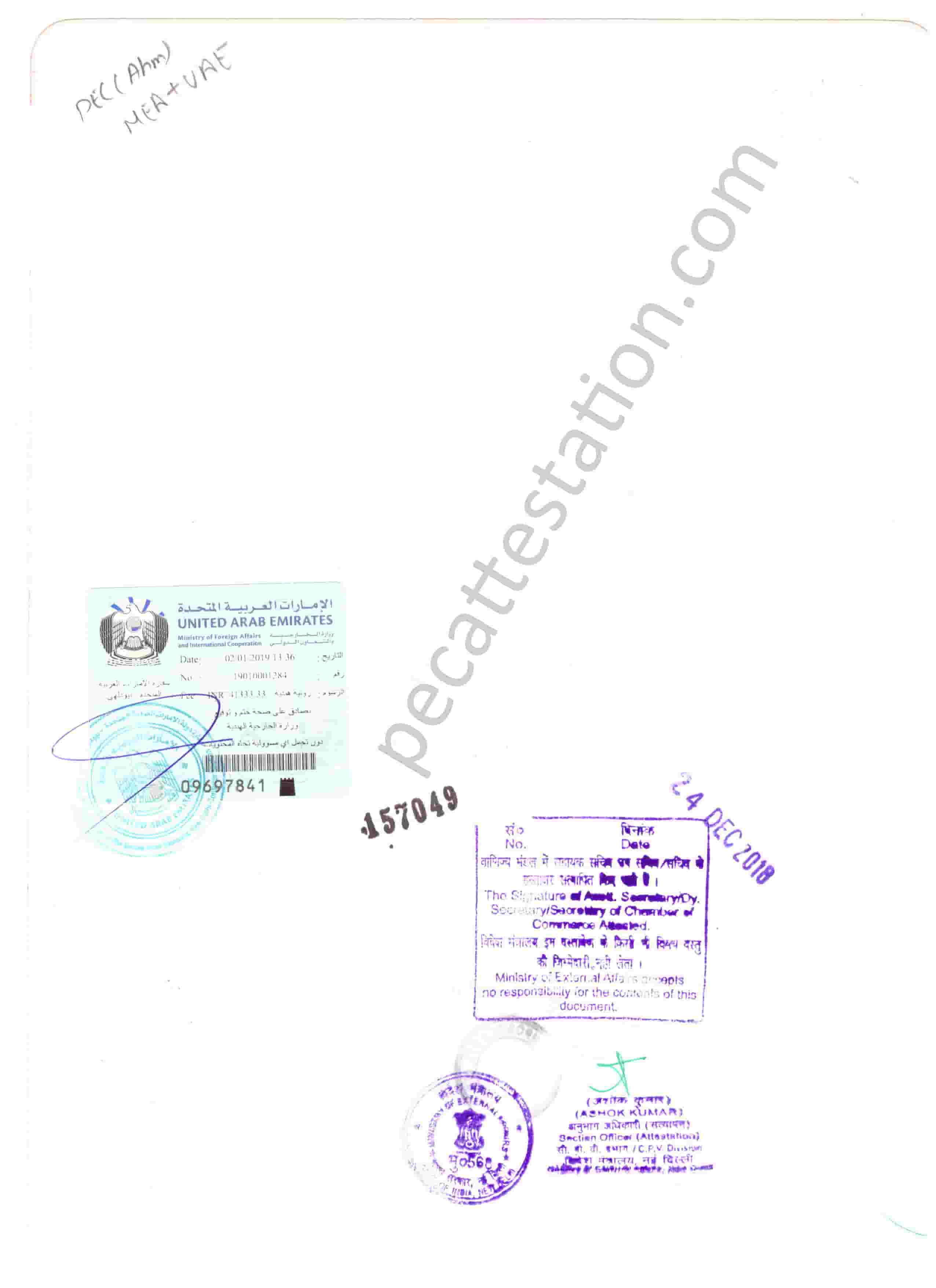
Document Attestation & Apostille Services
Fast, Reliable, and Expert-Reviewed.
Our expert attestation consultants are ready to help you succeed!
Foreign travel is common for personal and professional reasons. It ranges from higher studies and work to expanding a business. In such cases, you may hear about "document attestation" or "certificate attestation".
The attestation of documents/ certificate attestation proves that the documents you present are authentic. In the process, the documents are verified by the appropriate authorities. To protect the public and the business from fraudulent or forged documents used for personal or professional reasons, this attestation is necessary.
The attestation process adds official seals or certificates to your documents. The steps for document attestation in India will depend on your document type and where you plan to use them.
It's important to know that the attestation of documents in India often involves a series of steps. This process, handled by designated authorities in India, includes many verification stages. These seals confirm the document's origin and prove that an official person signed it. The authorities grant your document validity in another country with these seals.
Generally, you'll start with notary verification by a local official, like a notary public. State-level authorities like the Home Department may need to attest the document. The Ministry of External Affairs (MEA) https://www.mea.gov.in/ often handles final attestation.
Sometimes you might need an extra certification attestation from the Embassy/ consulate of your destination country. It is called the Embassy Attestation. Services called Attestation services help you get all your attestations completed without much hassle.
In the legal world, attestation is a way to show they are genuine. Attestation involves officials checking a document and then putting a stamp or signature on it. This stamp or signature tells that the document can be trusted as it has been verified. Attestation is a legal requirement in many cases. Various authorities do it for various purposes. For example, you might need certificate attestation for your academic documents or document attestation for important personal papers.



Certification attestation means you need to prove your educational documents are real. These are official stamps of approval for your diplomas, transcripts, or other academic certificates. You will likely need this if you are applying for a job, seeking higher education, or getting a professional license in another country. The process usually involves getting your documents verified by a notary public, your educational institution, and various government departments (this often includes HRD attestation).
Sometimes, you may also need approval from the embassy or consulate of the country you are going to. If your destination country is part of the Hague Convention, you might be able to get an Apostille attestation, simplifying the process. The whole point of certificate attestation is to make sure your educational credentials are recognized and trusted wherever you go.
The attestation of documents is the official process of verification. The verification is done of your important papers whether they are personal, educational, commercial or legal. This process involves getting special stamps, signatures or endorsements from designated authorities in your country. The exact steps of document attestation vary from country to country, the type of documents and their use in the destination country.
Attestation makes documents official for use in other countries. Document Attestations prove they are real and streamline the visa process. Embassies require these stamps for your educational certificates, personal documents (like birth certificates) and sometimes medical records. If you skip certificate attestation it can lead to delays or even rejection of your visa application.
Important Note - When travelling to Gulf countries (UAE, Qatar, Saudi Arabia), there might be an extra step called MOFA attestation. It involves verification from their Ministry of Foreign Affairs. Be sure to check the requirements for your destination to avoid delays.
Different authorities do document attestation for your travel. Depending on the document type and destination country, you'll likely start with a notary public who can verify the original's authenticity. This could include documents such as birth certificates, marriage certificates, educational certificates (where you might need HRD attestation), and more.
Next, various state government departments might need to attest the documents. After that, you get an attestation from the Indian Ministry of External Affairs (MEA) department called the MEA attestation.
Countries like Qatar, Saudi Arabia and the UAE require one more approval for people travelling for work/ higher studies or business. It is issued from the embassies of these countries located in India. It is called an embassy attestation. In these cases, the embassy plays a vital role, and they often need to provide what’s called MOFA attestation. (If you are travelling to the UAE then it is called the UAE MOFA attestation). The embassy also keeps you well-informed about the process.
Depending on your travel destination and the type of documents you have, you'll need to go through different attestation steps in India. Here's a breakdown of the most common types:
Start by visiting a notary public. They will verify the authenticity of your original documents and provide a stamp or signature. It is the fundamental first step in most attestation processes.
The legalization of educational documents (like HSC certificates) in India, by the HRD department is called HRD Attestation. It is issued by your state's Human Resource Development department.
Personal documents like marriage or birth certificates often require Home Department attestation from the Home Department of your state.
In some cases, the Sub-Divisional Magistrate might be an alternative to the HRD or Home Department for attestation.
If you're travelling for business purposes, you'll likely need an attestation for commercial documents (like invoices or contracts). The first step is getting approval from your local Chamber of Commerce, verifying your business's legitimacy.
The Ministry of External Affairs (MEA) handles the final stage of attestation within India, adding their stamp of approval. It is known as the MEA Attestation.
Certain destination countries require additional verification from their embassy or consulate in India called the Embassy Attestation.
Some Gulf countries (like UAE, Saudi Arabia, and Qatar) require an extra step of attestation called the MOFA Attestation. After embassy attestation, you will also need approval from the Ministry of Foreign Affairs (MOFA) in the destination country.
An attestation issued for travelling to a country which is a part of the Hague Convention is called an Apostille Attestation. It is issued by the Ministry of External Affairs. It can save you time and hassle. This simplifies the process by replacing the n
There are three main categories of the process of certificate attestation. The information of which documents need attestation changes from person to person thus making the process of certificate attestation unique for them.
Attesting personal documents is called personal document attestation.This attestation proves that your personal documents are genuine and come from legitimate sources. When you need long term residency visas you apply for a personal document attestation. They are either stamps or signatures of approval.
Attesting educational documents is called educational document attestation. It gives certification verification to your degrees, diplomas, and other academic certificates. This ensures your academic credentials are recognized as legitimate. The specific steps depend on where your documents were issued and the type of document. Degree certificate attestation frequently involves working with the HRD department and potentially the embassy of your destination country.
Attesting documents related to your business is called commercial document attestation. Documents like financial statements and business contracts. Your first step to get commercial document attestation is usually getting approval from your local Chamber of Commerce to establish your business's legitimacy.
To find the best attestation services in India, you should consider a wide range of factors, including online reputation, experience, reliability, speed, cost, specific need and customer support.
Types of attestation required: An attestation can be of various types, including HRD attestation, MEA attestation, Apostille attestation, or Embassy attestation. Choose a service that offers the type of attestation you require
Reputation: Choose an attestation company with an excellent reputation and experience in your country's requirements. See if your friends or colleagues have used an attestation service and check online reviews
Additional services: Identify what services the company offers, such as document preparation, tracking, and expediting. If you require a particular service, make sure they provide it. There are also some agencies that provide free pick-up and drop-off services all over India, so this is also something to consider since it will save you a lot of time and effort.
Price: Compare prices from several companies before choosing one. You should ask about any additional fees if they are not included in the price.
Process Time: Ask the company how long it will take to process your apostille. Make sure the company you choose can meet your deadline if you have one.
Attesting documents in India can be complex. Understand the process thoroughly before you begin. For fast, hassle-free service, consider using a certificate attestation agency. PEC has 13 years of experience streamlining document authentication. We serve clients nationwide, including: Pune Pimpri Ahmedabad Mumbai And many more
PEC has been functioning for more than a decade. We have successfully attested more than 1.5 lakh documents so far. We have built this belief and trust all because of the support and professionalism that we have gained over the years. Let us show you how we can help you with the best facilities:
Apostille and attestation are two different processes of document legalization. Apostille is a specific attestation required for a set of countries that are part of the Apostille Hague Convention. This convention simplifies the document legalisation process by providing a standardized certificate, known as an apostille, recognized by all member countries.
On the other hand, attestation is a broader term that refers to verifying a document's authenticity. It is done for the rest of the countries not part of the Apostille Hague Convention. As proof of Apostille, an apostille sticker is usually applied to the document with a stamp; after the legalization of documents, they are stamped by the central government and are applicable for embassy attestation.
© PEC 2026 Copyrights Reserved. Developed by WGBL India Pvt. Ltd. | A BTW Group Company